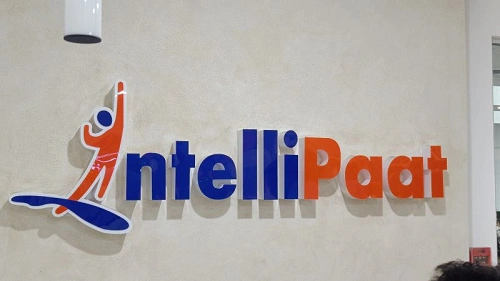Puma, one of the world’s leading sportswear brands, is renowned for its high-quality athletic footwear, apparel, and accessories. With its strong global presence and a loyal customer base in India, Puma has become a symbol of style and performance. The brand’s increasing popularity in India, fueled by the growing demand for athleisure and sportswear, makes owning a Puma franchise an attractive business opportunity.
In this article, we’ll explore the costs, eligibility requirements, profitability, and steps to acquire a Puma franchise in India, along with the challenges and benefits of partnering with the brand.
Why Choose a Puma Franchise in India?

- Global Brand Recognition: Puma is a trusted brand with a strong reputation for quality and innovation.
- Wide Product Range: Puma offers footwear, clothing, and accessories for sports, fitness, and casual wear, catering to diverse customer needs.
- Growing Market Demand: The rising interest in fitness, sports, and athleisure in India drives consistent demand for Puma products.
- Extensive Support: Puma provides franchisees with robust operational, marketing, and training support to ensure business success.
Types of Puma Franchise Models
Puma operates through various franchise models, offering flexibility based on location and market needs:
- Exclusive Brand Outlets (EBOs): These stores feature the full range of Puma products and are located in malls, shopping complexes, or high streets.
- Factory Outlets: These outlets focus on discounted products, targeting price-sensitive customers while clearing previous season’s inventory.
Cost of Puma Franchise in India
The total investment required for a Puma franchise depends on the type of store, location, and market potential. Below is a breakdown of the costs:
Initial Investment
- Franchise Fee: The one-time franchise fee for a Puma outlet in India is approximately ₹5 lakhs to ₹10 lakhs.
- Setup Costs: Establishing a Puma store involves costs for interiors, furniture, signage, and technology. The typical investment is:
- ₹50 lakhs to ₹1 crore for an Exclusive Brand Outlet.
- ₹25 lakhs to ₹50 lakhs for a Factory Outlet.
- Real Estate Costs: Leasing or renting commercial space in a high-footfall area can cost ₹1 lakh to ₹5 lakhs per month, depending on the city and locality.
- Initial Inventory: Stocking the store with Puma products requires an initial investment of ₹30 lakhs to ₹50 lakhs, depending on the store size.
Recurring Costs
- Operational Expenses: These include salaries, utilities, and maintenance, typically amounting to ₹2-5 lakhs per month.
- Royalty Fee: Puma charges a royalty fee of 5-10% of monthly gross sales.
- Marketing Contributions: Franchisees are required to contribute 2-3% of gross sales toward national and regional advertising campaigns.
Profitability of a Puma Franchise
Puma franchises are known for their profitability due to the brand’s strong market presence and high customer demand. Here’s an overview:
- Revenue: A well-located Puma outlet can generate monthly revenues ranging from ₹10 lakhs to ₹30 lakhs, depending on the location and customer base.
- Profit Margins: Profit margins typically range between 15-20%, after accounting for operational expenses.
- Breakeven Period: Most Puma franchises achieve breakeven within 1.5 to 3 years, provided they are efficiently managed and located in prime areas.
Eligibility Criteria for a Puma Franchise
To qualify for a Puma franchise, applicants must meet the following requirements:
- Financial Stability: A net worth of at least ₹1 crore and liquid assets of ₹50 lakhs to ₹75 lakhs to support the investment and operational costs.
- Location Access: The ability to secure commercial property in high-footfall areas such as malls, shopping complexes, or busy streets.
- Retail Experience: While prior experience in retail or the fashion industry is preferred, it is not mandatory.
- Commitment to Standards: Franchisees must adhere to Puma’s strict quality, branding, and operational guidelines.
How to Apply for a Puma Franchise
- Submit an Application: Visit Puma India’s official website or contact their regional franchise team to express your interest.
- Screening Process: Puma reviews your application based on financial capability, business experience, and proposed location.
- Site Approval: The proposed location is evaluated for its market potential and alignment with Puma’s target audience.
- Franchise Agreement: Once approved, sign a franchise agreement detailing the terms and conditions.
- Training and Setup: Puma provides training and guidance on store operations, inventory management, and customer service. The company also assists with the store’s setup.
- Launch: Open the store with marketing and operational support from Puma.
Benefits of Owning a Puma Franchise
- Strong Brand Value: Leverage Puma’s global reputation and loyal customer base.
- Wide Customer Appeal: Cater to a broad audience, from fitness enthusiasts to casual wear customers.
- Comprehensive Support: Receive training, marketing assistance, and operational guidance from Puma.
- Diverse Revenue Streams: Earn through sales of footwear, apparel, and accessories.
Challenges of Operating a Puma Franchise
- High Initial Investment: The upfront costs for setting up a premium sportswear store may deter some potential franchisees.
- Market Competition: The sportswear market is competitive, with brands like Nike, Adidas, and Reebok vying for market share.
- Operational Complexity: Managing inventory, adhering to branding standards, and delivering excellent customer service require consistent effort.
- Location Dependency: Success heavily depends on securing a prime retail space in high-traffic areas.
Conclusion
Investing in a Puma franchise in India is a promising opportunity for entrepreneurs looking to enter the growing sportswear and athleisure market. With its strong brand reputation, diverse product range, and robust support system, Puma offers a reliable pathway to success in the retail sector.
However, careful planning, strategic location selection, and efficient management are crucial for maximizing profitability. By aligning with Puma’s global standards and India’s evolving consumer preferences, you can establish a thriving franchise in the competitive sportswear market.
Anantha Nageswaran is the chief editor and writer at TheBusinessBlaze.com. He specialises in business, finance, insurance, loan investment topics. With a strong background in business-finance and a passion for demystifying complex concepts, Anantha brings a unique perspective to his writing.


